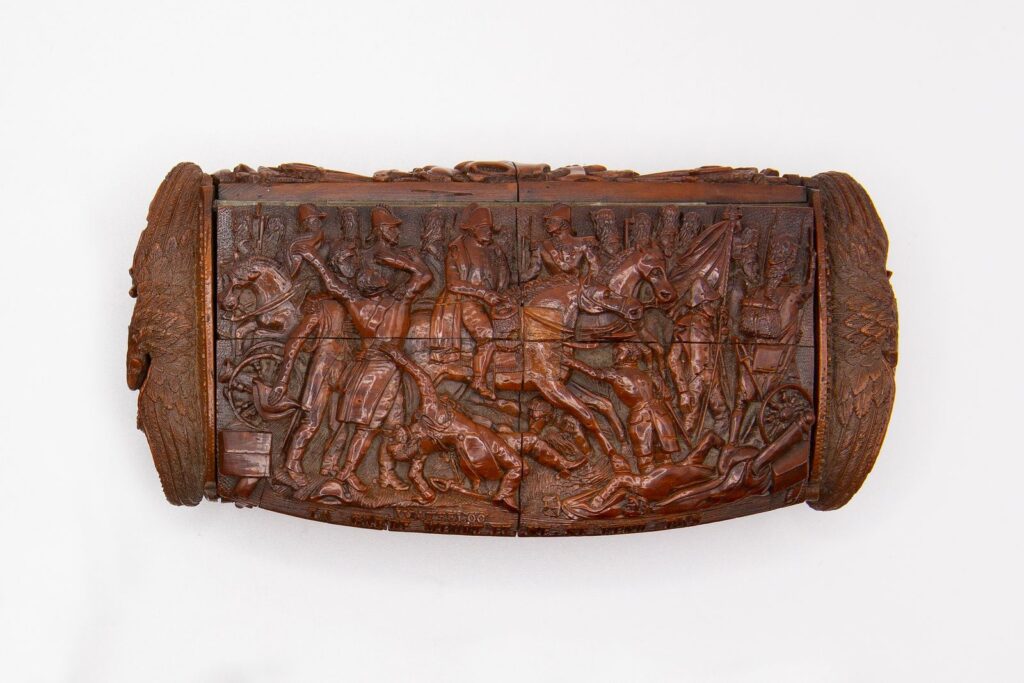Napoleon Bonaparte

The lid of an intricately-carved coquilla nut snuff box depicting Napoleon Bonaparte at the Battle of Waterloo, circa 1825 (4.8 inches long).
Napoleon Bonaparte (1769-1821) was one of the most powerful and influential military and political leaders in history. He played a major role during the French Revolution (1789-1799) and Napoleonic Wars. He seized power as the First Consul of the French Republic in a coup d’etat in 1799 and, in 1804, he declared himself first Emperor of France. He conducted a series of global wars against various coalitions of European powers that ensured France’s domination of Europe until his final defeat at Waterloo in 1815, ending the era of the Napoleonic Wars. He was exiled to the island of St. Helena in 1815 and died there in 1821. His body was returned to France in 1840 for burial at Les Invalides in Paris.
The Badger Collection contains a group of extraordinary snuff boxes either depicting or relating to Napoleon. The rare box featured above is one of the most important Napoleonic-era coquilla nut snuff boxes in existence. The lid of the box depicts Napoleon on his Arab, Marengo, at Waterloo, surrounded by the Imperial Old Guard. Engraved at the bottom of the box are the words, “WATERLOO LA GARDE MEURT ET NE SE REND PAS” (which translates to “Waterloo the Guard Dies but Never Surrenders”).
The specificity and accuracy of detail, based on an 1831 watercolor, The Battle of Waterloo, by Carl von Steuben, suggests it was carved in Canton, China. Coquilla nut carvings from China were made between 1815, shortly after Napoleon arrived on the island of St. Helena, and 1840, when Napoleon’s body was returned to France.
Several intricately-carved objects in the Badger collection were likely created in China, a consequence of global trade routes and the transport of commodities beyond the Atlantic. Beginning in the sixteenth century, Canton (now Guangzhou), China, was a major center for international trade. Canton was the first Chinese port to be opened to foreign traders, and was visited regularly by Portuguese, Dutch, and British merchants. During the Napoleonic Wars, naval battles between the French and British were fought in Chinese territorial waters off Canton.
Market dynamics in the 18th and 19th centuries meant that among the many goods transported, sold, and bought to and from Canton were coquilla nuts and coquilla nut snuff boxes, which may have been created or re-worked by Chinese artisans to produce new coquilla objects, some of which commemorated Napoleon Bonaparte and the Napoleonic Wars. Such commemorative objects were made on commission for export to Europe, or sold to a curio market on St. Helena, where Napoleon was exile and died.